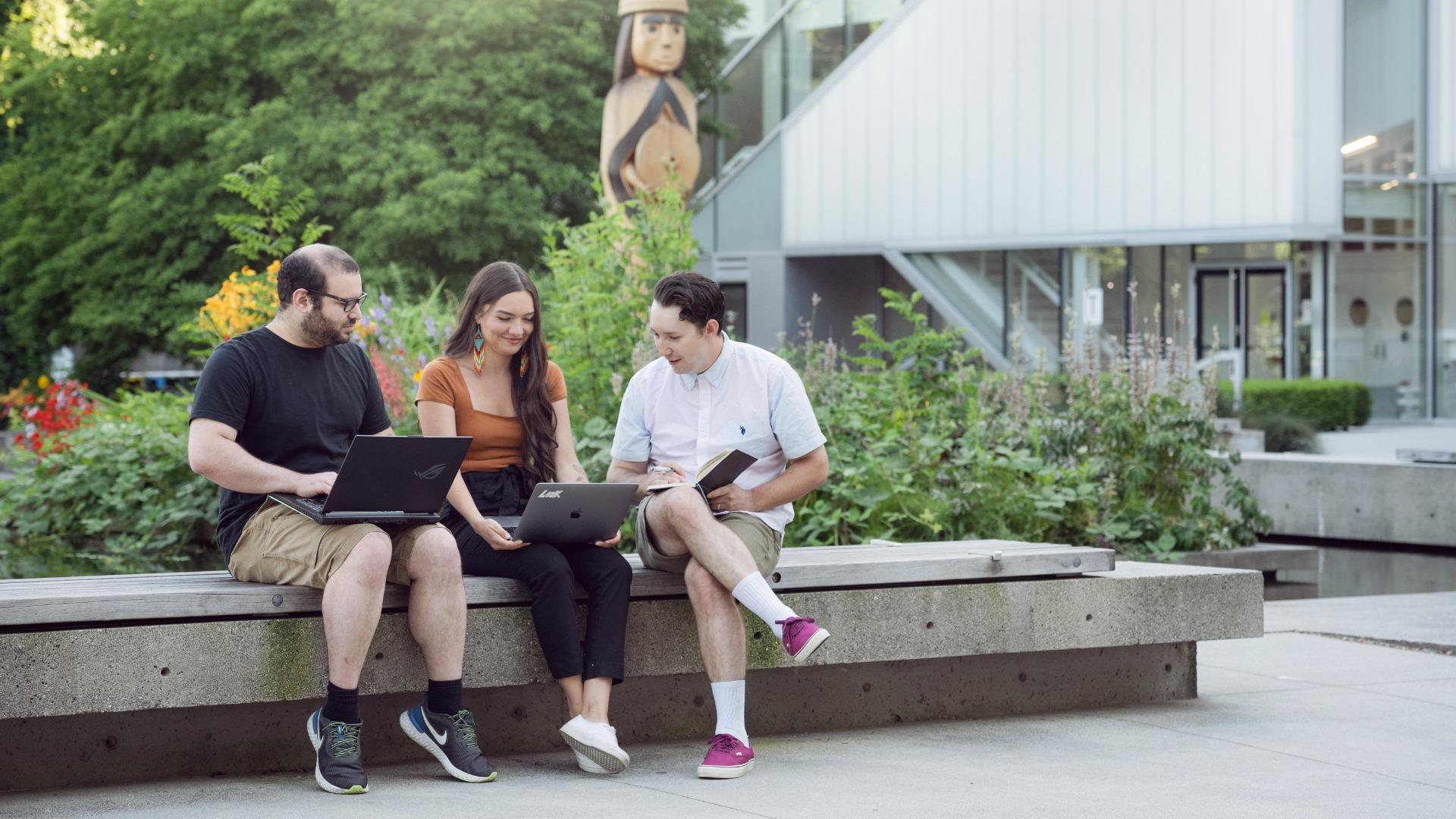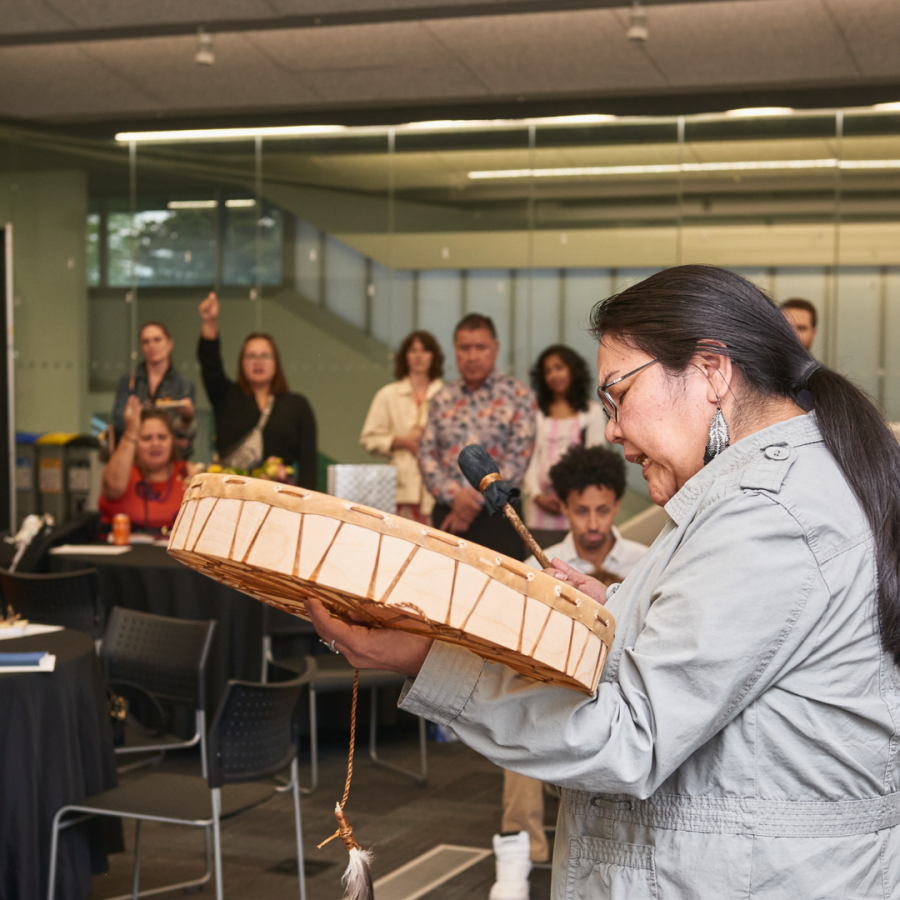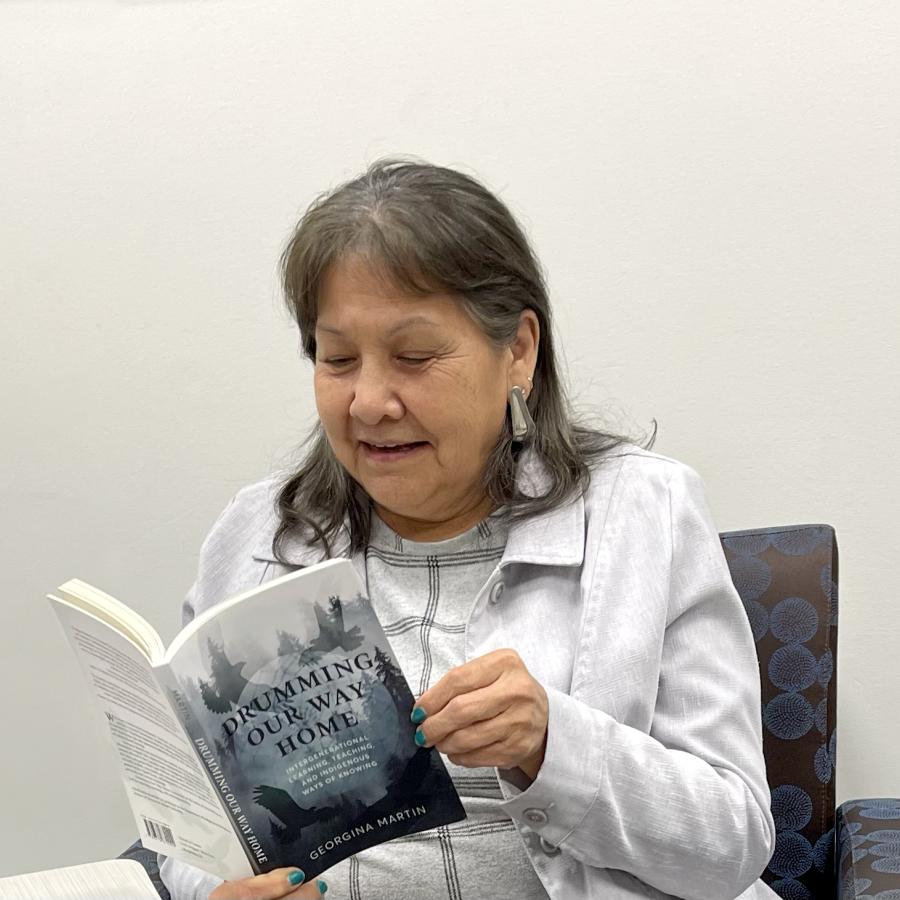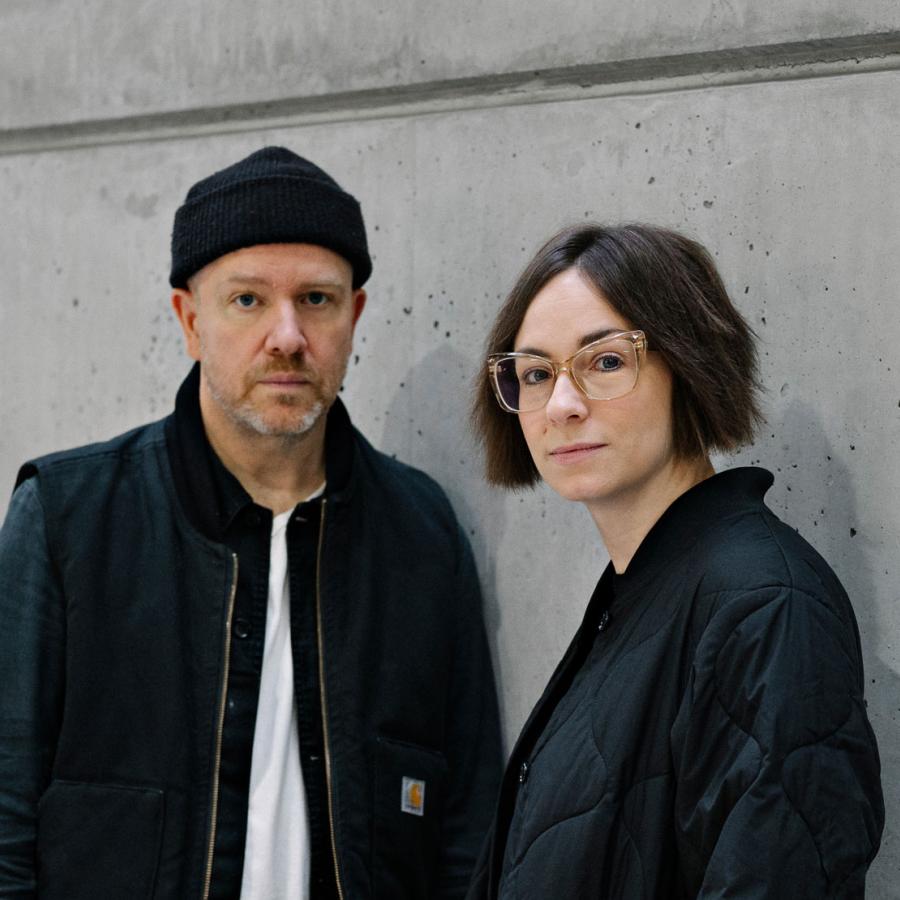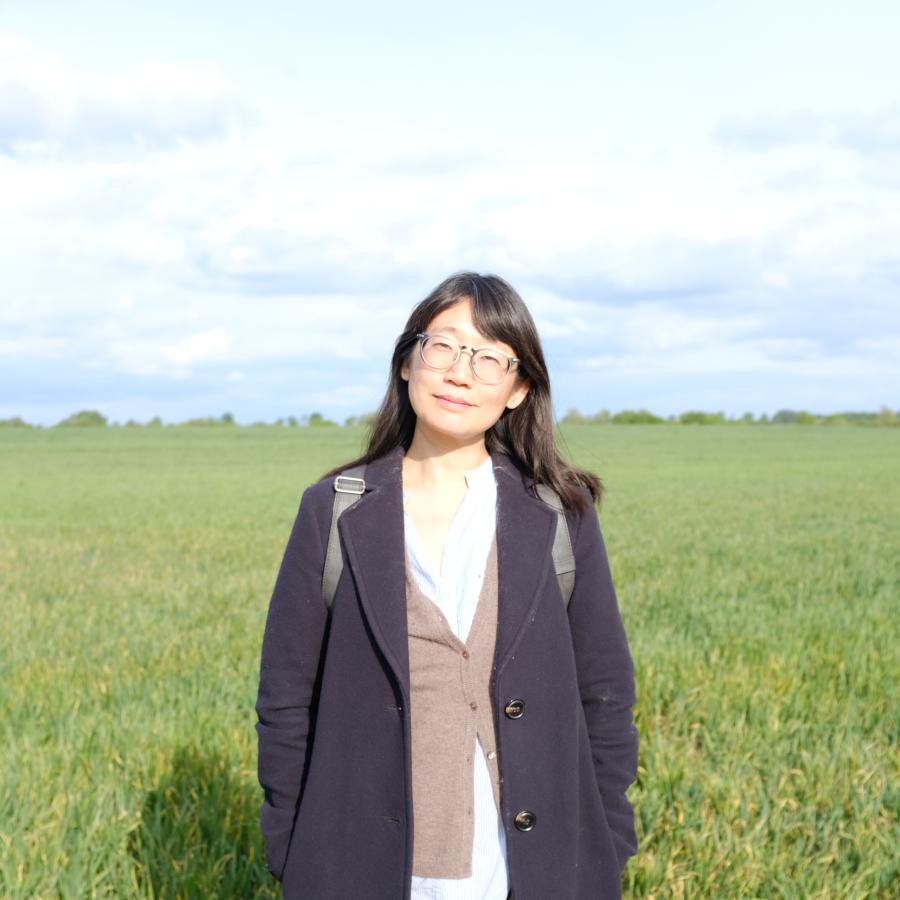Langara College’s Writing Lives program bridges generations by bringing students and Indigenous Elders together to co-write life stories, fostering cultural understanding and reconciliation to bring attention to the history of Indian Residential Schools. This unique course allows students to explore history and relationships while honing their writing skills, and Elders to preserve their stories for future generations.
Since 2019, Langara has been offering Writing Lives, a program that allows students to put reconciliation into action through the creation of a memoir with Elders and Residential School Survivors.
We spoke with Dylan MacPhee and Tanis Wilson, two of the students who worked with Sam George on his memoir, The Fire Still Burns: Life In and After Residential School. They share about the book’s creation, which lessons they learn along the way, and about becoming award-winning authors.
Connecting the past to the future: Tanis Wilson
An Indigenous woman, Tanis has heard stories about the residential school program since she was a child. She took the Writing Lives course not simply to unearth history, but to preserve it.
“I knew it was a good idea to support the elders to get their stories on paper—for themselves and their families.”
Though she was familiar with the stories, it didn’t make the course experience any less profound or the act of writing a book any less daunting. “My fear was not having the skills or aptitude. I didn’t think I could it based on my insecurities and fears,” admitted Tanis.
It was Sam George and Writing Lives instructor Jill Goldberg's guidance that she will remember most. “Sam was so forgiving. He didn’t harbour a lot of anger or resentment, considering what he’d been through,” said Tanis. “And I’ll remember Jill’s tenacity to bring these stories to life to following the truth and reconciliation recommendations. She’s a real ally.”
Now attending the Peter A. Allard School of Law at the University of British Columbia, Tanis has a clear vision of how to bring the skills and lessons she learned at Langara to her future career. “As a lawyer, it’s important to learn how to sit with people who have been through trauma,” she said. “I’m happy I had the opportunity to develop those skills before I even considered law school.”
Her advice to students interested in writing lives?
“Do it. You’re never going to have an opportunity like this outside of this course.”
Reconciliation in action: Dylan MacPhee
Dylan MacPhee learned about the Writing Lives course in an introductory English class. The future Registered Clinical Counsellor had worked as a carpenter building bridges in many remote Indigenous communities throughout Northern British Columbia and the Yukon before registering in a psychology program at Langara. Because his eventual career is predicated on helping members of the community, he was enthusiastic about the opportunity to learn first-hand and help to share a person’s story.
“Learning and knowing about the struggles of Indigenous people is extremely important for the type of professional – and the type of person – I wish to be.”
Unlike traditional classes, Writing Lives emphasizes relationship-building. Dylan and Tanis interviewed Sam about his experiences as a Residential School survivor using trauma-informed principles and wisdom taught by the Indian Residential School Survivor Society. Elements such as that highlight the unique atmosphere and opportunity of the course. And it is why Dylan views Writing Lives as the most meaningful work he undertook in his undergrad. “I can say with confidence that you will NEVER find an undergrad class that is so completely impactful as Writing Lives,” said Dylan.
“On top of the learning, and unlearning, you get to help an untold story be heard. What is more gratifying than that?”
Writing Lives is a two-term program taken through ENGL 2226 – Writing Lives I and ENGL 2286 – Writing Lives II. Learn more about how to be part of Writing Lives’ next intake.
